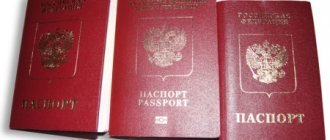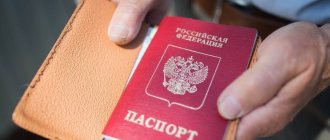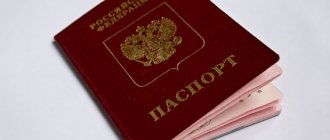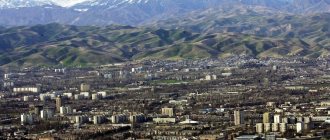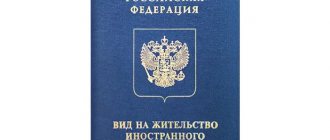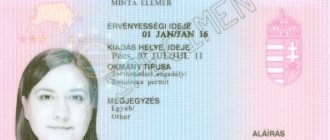The process of legalizing the residence of a foreign citizen in the Russian Federation consists of several stages: completing each of them strengthens the rights of the migrant and provides him with the opportunity to apply for Russian citizenship in the future. If you are planning to move to Russia in 2020, first you need to understand what the difference is between temporary residence permit, residence permit and citizenship. Understanding the terms associated with the migration procedure will greatly simplify the integration process in the new state.
How can a foreigner legalize his stay in the Russian Federation?
Migrants who arrived on the territory of the Russian Federation for further residence are required to declare themselves to the unit of the Main Directorate for Migration Affairs of the Ministry of Internal Affairs at their chosen place of residence.
At the initial stage, you will also need to collect a package of documents: only in this way will the migrant be able to legalize his status and freely cross the border.
Let's figure out how the migration laws of the Russian Federation regulate policy in this regard.
Temporary residence permit (TRP)
A foreign citizen who has entered Russia for long-term residence must... The permit will allow the migrant to legally stay in the Russian Federation, work and use medical care for three years without obtaining additional documents. A stamp with a temporary residence permit is placed in the passport or the migrant. Along with it, a visa is issued for multiple border crossings.
Find out more useful information about.
Residence permit (residence permit)
A residence permit is the next stage of legalization of a migrant after a temporary residence permit. The holder of a residence permit enjoys almost the same rights as citizens of Russia. If we carefully consider the concepts of “residence permit” and “citizenship”, there is a difference between them - a ban on voting and working in the civil service, which for the average person, in fact, does not play a big role.
The residence permit is issued for a period of 5 years and can be extended many times. If a foreigner has a residence permit, he can always apply for Russian citizenship.
Read more.
Permanent residence (permanent residence)
In a number of countries, a document of permanent residence is issued to a migrant after continuous residence in the country for 3-6 years. There are also other grounds that give the right to immediately obtain permanent residence: for example, investments in the state economy, etc.
In the migration legislation of the Russian Federation, the term “permanent residence” is not used.
Instead, a foreigner can apply for a temporary residence permit, then a residence permit, and then, if desired, submit an application for citizenship.
We also recommend studying in more detail.
Citizenship concept
Acquisition of Russian citizenship is possible by birth or through a simplified scheme, so-called naturalization. How fast and simple it will be depends on the migrant’s personal situation.
What matters here are the grounds for filing an application, good results, the history of the Russian Federation and its legislation, the willingness to renounce the citizenship of the country from which the migrant came, and convincing evidence of a legal source of income.
Deadlines
A temporary residence permit is issued for 3 years and cannot be extended. This means that you have received a temporary residence permit, live, work, submit a notification of residence with proof of income, and then, when 3 years have passed, the temporary residence permit expires.
The residence permit is issued for 5 years. You live, work in exactly the same way, submit a notice, but when the time comes after 5 years (at least six months in advance), you have the right to extend the residence permit for the next 5 years. At the same time, you have no restrictions on the number of extensions - your residence permit can be extended even until the end of your life.
I would like to note that even though living and working with a residence permit is in fact much easier than at earlier stages, you should not delay obtaining Russian citizenship if this is your main goal. The fact is that laws are being finalized, local rules are changing, bureaucracy has not yet been abolished, and as a result you can find yourself in a very difficult situation.
For example, from 2021, you can apply for a temporary residence permit for marriage only at the place of registration of your spouse. This means that if your spouse is registered in Tyumen, but lives and works in the Moscow region, then your family will have to go to live in Tyumen. As you understand, these are serious changes in life, but even before January 2019 this law did not exist.
Here is another example from my friends: a pensioner from Ukraine, whose adult son is a citizen of the Russian Federation, came to Russia and got to the point of obtaining a residence permit. He lives calmly, receives a pension, but then he developed health problems - diabetes. They said that only Russians are entitled to free insulin, and those with a residence permit will have to pay for it. As a result, I had to urgently, against the background of illness and nerves, deal with the registration of citizenship, but a couple of years ago I could have started this procedure without delay, when everything was still fresh. Now we have to look for a lot of information, documents, queues and money again...
All this means is that if you came to Russia with the goal of obtaining citizenship, if possible, do not delay it and go as quickly as possible according to your deadlines.
This is important to know: Certificate of knowledge of the Russian language for foreign citizens on a temporary residence permit: exam to obtain a certificate
The difference between temporary residence permit and temporary residence permit
Since the main goal of legalizing a foreigner is to legalize residence on the territory of the Russian Federation, to gain the opportunity to work and freely cross the border without issuing additional visas and permits, the difference between a temporary residence permit and a residence permit lies primarily in the rights that they provide.
For better understanding, the information is given in tabular form.
| Rights granted by status | RVP | Residence permit |
| Validity period and possibility of extension | 3 years non-renewable | 5 years, can be renewed multiple times |
| Medical service | Free within one subject of the Russian Federation where the migrant has temporary registration | Free in any subject of the Russian Federation |
| Pension provision | No | Yes |
| Status perspective | The right to apply for a residence permit | The right to apply for Russian citizenship |
| Duration of residence in the Russian Federation | 3 years | 5 years or more |
| Traveling within the territory of the Russian Federation | Unhindered movement throughout the country | The ability to change your place of residence within the country without prior notification to the authorities of the Main Directorate for Migration Affairs of the Ministry of Internal Affairs |
| Crossing the Russian border | By multiple visa | Entry without a visa |
| Employment | The right to employment within one subject of the Russian Federation, where the migrant has temporary registration, work without a patent | The right to work without additional documents. It is prohibited to hold the position of a civil servant |
| Possibility to take out a loan | No | Yes |
| Right to education | No | Yes |
| Responsibilities | Applying for a visa for multiple border crossings | Annual notification of the Main Directorate for Migration Affairs of the Ministry of Internal Affairs about your location |
| Participation in elections | Forbidden | Prohibited from voting in elections |
| Cancellation of status | Cancelled if the foreigner has been continuously absent from Russia for more than six months | Cancelled in case of prolonged absence from the territory of the Russian Federation for 6 months |
By submitting documents for a temporary residence permit, a migrant can remain on the territory of the Russian Federation even after the end of the 90-day period established by law.
Now let's figure out how a residence permit differs from a temporary residence permit in terms of accessibility to different categories of foreigners.
Any adult foreigner can obtain a temporary residence permit at the first stage of legalization, while only a certain category of migrants can apply for a residence permit, bypassing a temporary residence permit.
Thus, the following groups of persons can take advantage of a simplified scheme for obtaining a residence permit:
- ;
- native speakers of Russian whose direct ancestors lived in the territory of modern Russia;
- highly qualified specialists and their family members;
- persons who have the right to obtain Russian citizenship, but refused it for personal reasons.
What is a residence permit?
A residence permit is a document that gives a foreigner the right to live and work in the host country for a long time, limited by the validity period of the document. In Russia, temporary residence permit, residence permit, and citizenship occupy the main place in the chain of immigration statuses.
Difference between residence permit and permanent residence?
In EU countries, a residence permit differs from a permanent residence permit only in its validity period and truncated civil privileges. A residence permit is given on the basis of investments in the country's economy, obtaining an education, opening a legal entity. person and business. Permanent residence is the next step after a residence permit, which is given for an indefinite period after 5 years of stay in a foreign country with a residence permit document.
The holder of a residence permit must comply with a number of conditions regarding the limitation of time spent outside the Russian Federation. With permanent residence you can leave the country for up to 6 months and not have any consequences. Both documents give the right to employment and free border crossing.
Differences between temporary residence permit and residence permit in the Russian Federation
Many people are interested in what is the difference between these two concepts. The legal statuses of residence permits and temporary residence permits are different. RVP is a document permitting temporary residence in the Russian Federation. The holder of a temporary residence permit can freely leave and enter the Russian Federation without additional formalities and is issued for a period of 3 years.
During this time, the foreign citizen is required to obtain a residence permit or leave the country.
Many people are interested in how a temporary residence permit differs from a residence permit. The main difference is the right to work. The temporary residence permit does not give such a right. With a residence permit you can work in any organization except government. organs. Upon receipt of a temporary residence permit, a mark is placed in the international passport, while a residence permit is a separate document.
A temporary residence permit assumes a strict territorial link to the subject of the federation in which it was issued. You cannot work or live in other regions with a temporary residence permit, but you can move freely around the country.
What is issued first: temporary residence permit or residence permit?
Having understood what temporary residence permits and temporary residence permits are, you need to determine the sequence in which these statuses are issued. In any state, first of all, a temporary residence permit is issued for a period of temporary stay from 1 to 3 years. Extension is not provided.
After this, a residence permit is issued, valid for 5 years with unlimited renewal periods.
Is it possible to obtain a residence permit without a temporary residence permit?
For special cases, the legislation of the Russian Federation allows for the possibility of obtaining a residence permit without a temporary residence permit. It is available to citizens from Belarus, which is a member of a joint union state with Russia.
Citizens who have grounds for obtaining Russian citizenship, but do not want to do so, can also obtain a residence permit without registering a temporary residence permit.
Native speakers of the Russian language who have renounced the citizenship of another country are entitled to an extraordinary right to obtain a residence permit, but only in the Ministry of Internal Affairs agency in which they were recognized as native speakers. For other categories of foreign citizens there are no benefits in obtaining a temporary residence permit or temporary residence permit.
Read: Obtaining the status “Native speaker of Russian” for a simplified procedure for obtaining Russian citizenship
Visa and residence permit - what is the difference?
The difference is cardinal and lies in the fact that a visa gives permission to enter the country for a limited period of stay, after the expiration of which you must immediately leave the state.
A visa is given only for tourist trips, business trips, etc. A residence permit in the future after passing an exam on knowledge of history and the Russian language gives the right to apply for citizenship.
The difference between residence permit and permanent residence
In global migration practice, an order has been adopted according to which a foreigner goes through the following stages of legalization: obtaining a residence permit, then permanent residence and the last stage - citizenship. The main difference between permanent residence and a residence permit is permission to cross the border multiple times without visas and the possibility of employment without obtaining additional documents. Other information about the similarities and distinctive features of residence permits and permanent residence permits is also presented in the table.
| Rights granted by status | Residence permit | permanent residence |
| Duration of residence in the Russian Federation | Allowed to reside in any region of the country for the entire duration of the visa, which can be extended | Possibility of indefinite residence, freedom to cross the border |
| Employment Opportunity | Possibility of entrepreneurial activity or employment with a permit | Permission to work in any field except the civil service |
| Free education and health care | Eat | The right to take advantage of all benefits and social privileges available to citizens of the country |
| Possibility of purchasing real estate, car | Yes, plus a driver's license | Yes, plus a driver's license |
| Status perspective | The right to apply for permanent residence after a certain period | Opportunity to apply for citizenship |
| Travel abroad | Obtaining visas to enter other countries at consulates and embassies in the country of migration using a simplified scheme | Without obstacles, obtaining visas to other countries on the same basis as citizens of the Russian Federation |
| Participation in elections | No | No |
Each country establishes an individual procedure for the legalization of a foreigner on its territory. Knowing the difference between permanent residence and residence permit is important in order to correctly develop a strategy for obtaining migrant status.
The difference between permanent residence and citizenship
What are residence permits and permanent residence permits and how they differ from each other, we have already found out above. Now it’s worth understanding what the difference is between permanent residence and citizenship.
The rights of a permanent residence holder and a citizen of the country are almost identical, with the exception of the ability to participate in elections and voting; employment in government and, sometimes, military service is prohibited.
Since the differences are minor, many foreigners prefer to extend their permanent residence permit (if necessary). In addition, to obtain a passport, you must renounce the citizenship of your country, and permanent residence status allows you to retain the passport of your native state and not get involved in the bureaucratic red tape associated with acquiring citizenship.
